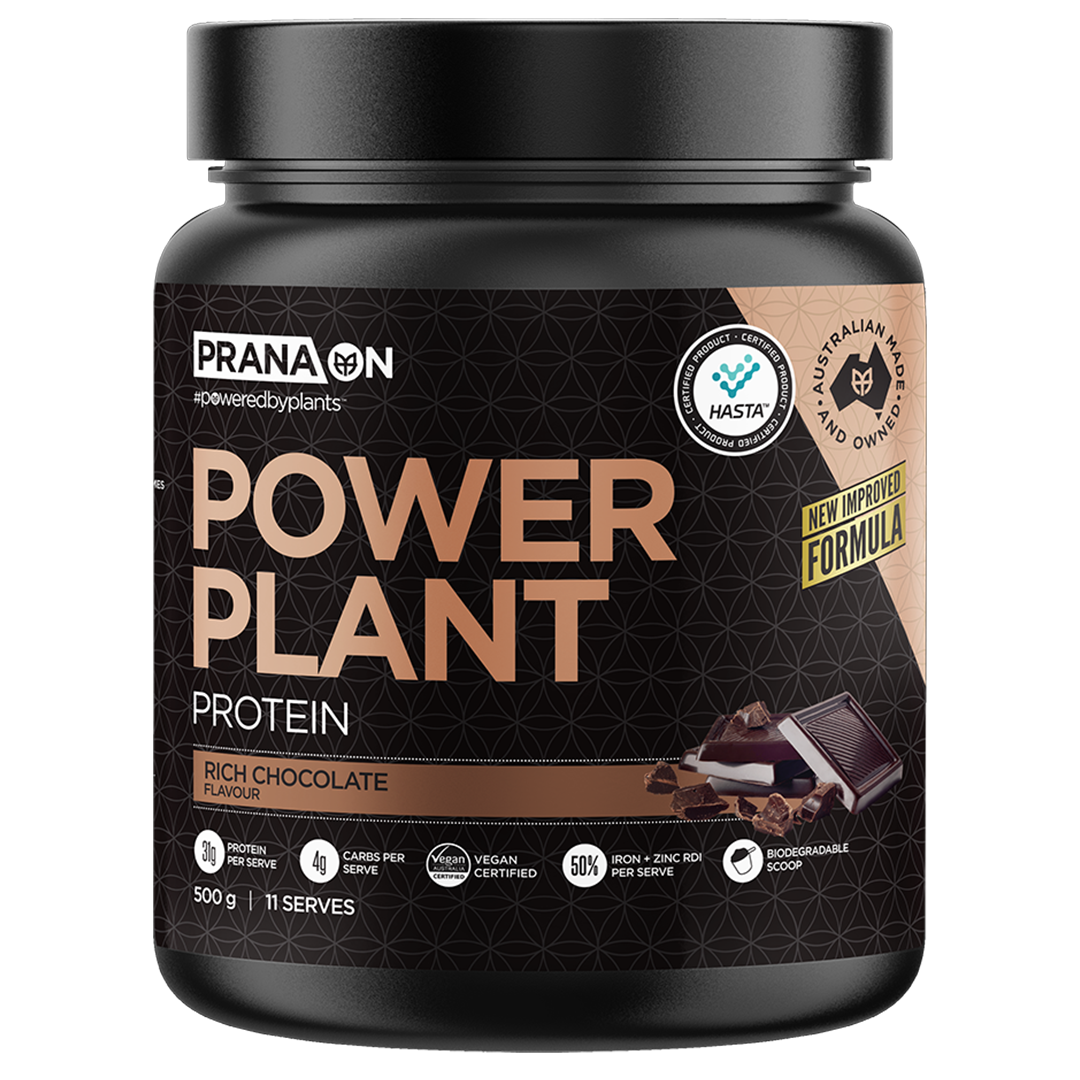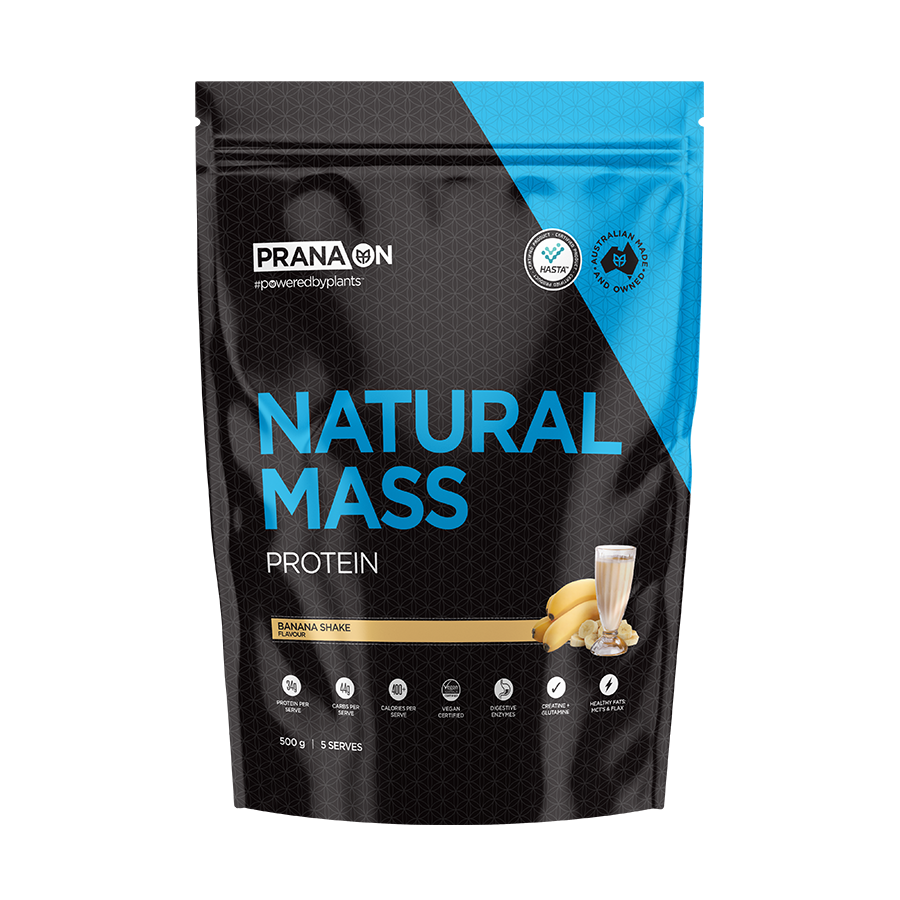Fuelling Performance: Achieve Optimal Fitness with a Powered By Plants Approach
Embracing a diet that’s powered by plants can be a game-changer for your overall fitness and well-being. In this article, we'll explore how a plant-based approach can enhance your performance by improving blood flow, providing better fuel for your body, enhancing muscle efficiency and reducing inflammation. We'll also address the common concern of protein intake and offer some practical tips for making a successful transition to a plant-based diet.
The fitness benefits of a powered by plants approach
Switching to a plant-centred diet can offer significant advantages when it comes to fuelling your body, enhancing blood flow, optimising muscle efficiency and reducing inflammation.
Increased blood flow
Efficient blood flow is vital for delivering oxygen and nutrients to your muscles and brain, as well as for removing waste products. Plant-based meals promote fluid and rapid blood flow, unlike animal-based meals, which can impede circulation. Foods like spinach, lettuce, carrots and beets, rich in nitrates, signal blood vessels to open up, ensuring swift blood flow. In contrast, animal-based diets can constrict arteries, which may cause a traffic jam in your circulatory system.
Better fuel for performance
Glycogen, a type of carbohydrate found in plants, powers our muscles and brain. Carbohydrates are essential for providing quick and sustained energy during workouts and daily activities. Diets heavy in meat and animal products tend to be higher in fat than carbohydrates, potentially hindering high-intensity performance and leaving you feeling sluggish. In reality, carbohydrates from unprocessed plant foods like oats, sweet potatoes and bananas are your body's ideal energy source and are even associated with decreased body fat, dispelling the myth that carbs lead to weight gain.
Improved muscle efficiency
Our muscles have limited energy reserves, and the more efficiently they work, the further these reserves can take us. Nitrates from plant foods can help muscles contract more effectively, whether you're lifting weights or sprinting. Beet juice is packed with nitrates, which could potentially boost your athletic performance without the concerns often linked to nitrates found in meats, processed meats, cheese and bacon.
What about protein?
Many athletes worry about getting enough protein on a plant-based diet to build muscle and recover after workouts. Notably, proteins like legumes, nuts, and seeds are particularly beneficial for athletes looking for an optimal blend of protein.
While some plant foods may have slightly lower protein bioavailability compared to beans and soy foods, eating a diverse diet throughout the day and evenly distributing your protein intake between meals and snacks will easily help you meet your protein goals. Additionally, protein powders that are powered by plants can be a helpful supplement, often being gentler on the digestive system than some animal-based options.
Tips on making the switch to a plant-based diet
Navigating the world of plant-based eating can have its challenges, but here are some tips to help you overcome common pitfalls and improve your overall health and fitness.
- Take supplements — Consider taking supplements for nutrients like B12, vitamin D and iron, as these can be more challenging to obtain solely from plant-based sources.
- Eat a rainbow — Aim to include a variety of colourful fruits and vegetables in your diet. Different colours often indicate different nutrients, so a colourful plate is a healthy one.
- Go for calorie-dense foods — Plant-based foods tend to be lower in calories, which can be tricky if you're an active person. To maintain your energy levels, focus on calorie-dense foods like nuts, seeds and oils. Don't forget to eat more frequently throughout the day to keep your energy up.
- Take it slow — Transitioning to a diet that is powered by plants doesn't have to happen overnight. Take it at your own pace. You can start by making small changes, like having days when you eat plant-based at home. Flexibility is key, and gradual changes are more likely to stick.
- Drink more water — Some high-fibre plant foods might be hard on your digestion if you're not used to them. Drinking more water can help ease this transition. Remember, increasing fibre without increasing fluid intake can lead to constipation and bloating.
- Shop for healthy snacks — Eating a healthy plant-based diet requires some planning. Although fresh produce is key, you’ll want to have nutritious plant-based snacks readily available for those moments when hunger strikes after a tough day at the gym. Options like plant-based protein bars, roasted chickpea snacks and fresh fruit are great choices.
- Focus on your goals — Having a clear reason for pursuing a plant-based lifestyle can help you stay motivated and committed. Whether it's for your fitness, the environment or animal welfare, knowing your "why" can keep you on track.
Should I switch to a plant-based diet as an athlete?
Whether you're an athlete or simply someone looking to optimise your health, making the switch to a plant-based diet is a promising step towards achieving your goals. Don't let protein concerns hold you back — with the right choices and a thoughtful approach, you can thrive on a diet that’s powered by plants while reaping the rewards of a mindful diet.
Shop our range of plant-based supplements at PranaOn
To supercharge your diet, explore PranaOn's extensive range of supplements, including amino supplements, muscle-building essentials, value-packed bundles and immunity-boosting detox solutions. Elevate your fitness game and nourish your body with the best supplements that are powered by plants!




Leave a comment